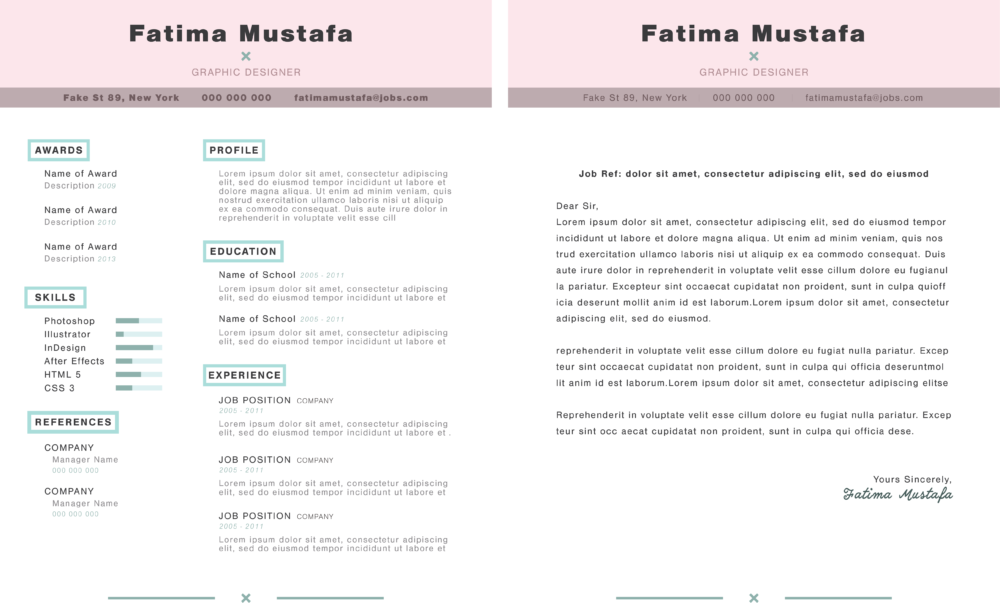Leading up to senior year of college, it seems that a lot of weight is placed on grades and having a stellar GPA in order to have a shot at a successful career. It often isn’t until college students begin their job search, and are scrolling through job description after job description that they come face to face with what really separates them from other prospective job candidates: experience.
At the discovery of this, you may feel slightly betrayed, misguided, and underprepared, and the frustrating question becomes, “Well, how can I expect to have experience when I am still completing my degree?” And the answer to that question is internships. It may be overwhelming to have an internship along with your other classes, but it is doable, and highly beneficial, especially if you can get college credit for it.
However, if you can’t get into an internship before graduation, there is nothing wrong with doing one afterwards, even if it is unpaid (if you can afford to, or if you can work part time on the side). Statistics show that internships often lead to full-time, entry level jobs; in 2019 alone, the offer rate for interns was 70.4%, the acceptance rate was 79.6%, and the conversion rate was 56.1%.
According to data shared by Arthur Zuckerman on CompareCamp.com, “Employers identify internship experience as a differentiator when choosing between two equally qualified applicants. Completing an internship within the hiring organization had a 4.6 influence rating on an employers’ hiring decisions. On the other hand, internship experience within the industry had a 4.4 influence rating on employers’ hiring decisions.”
Applying for internships, like applying for jobs, can be an intimidating and overwhelming process if you do not know where to start. In this article, we’re sharing 7 ways to land an internship within your desired field. Read on to learn how!
1. Get Excellent Recommendation Letters

Building good relationships with your professors and your employers is valuable for many reasons, but one of those reasons is because they’ll be more inclined to write you a stellar recommendation without hesitation when you need one. Whether it’s an internship or a job, hiring managers refer to these letters for more insight on your character, work ethic, and capabilities as they are based on firsthand experiences with those who have worked closely with you in the past.
So, when you can, take advantage of your professor’s office hours to ask questions, to discuss your performance and what you need to improve on, and show that you are truly invested in the work you do.
Furthermore, put your best foot forward in the work you submit, and be more engaged in the class itself by participating in class discussions. The more involved you are, the more you will be noticed by your professor for your efforts, and the easier it will be for them to write you an outstanding recommendation.
The same goes at work–impress your employer by taking initiative and working hard. This will go a long way as the capabilities you demonstrate will be what is reflected on in your employer’s referral to any prospective employer in the future.
Also, be sure that the recommendation letters you get are not only from professors or employers that you have a good history with, but that they are in courses and/or fields relevant to the internship you are applying for, and can speak to the skills you will need for that internship.
Lastly, make sure you ask for letters of recommendation well in advance from the deadline in order to give those who you ask enough time to write you a thoughtful letter. If you give them short notice, they may refuse to write one altogether, or not get it back to you in time for the deadline. So, always plan ahead so that you have enough time to get a recommendation from someone else if need be.
2. Write an Impressive and Well-Crafted Resume & Cover Letter

Resumes and cover letters are easily the most tedious part of applying for any internship or job. You need to make sure that your resume and cover letter are geared towards the specific internship(s) you are applying for, and that the skills and experiences you include are relevant to those that the internship program requires. This is crucial because hiring managers are looking at many more applications aside from yours, and on average, they only spend a total of 6 seconds reading over each resume.
So, make sure that you start off with a strong cover letter to peak their interest into looking further at your resume. Then, continue impressing them with your resume by highlighting the most important details at the top so that they will actually consider you as a probable candidate to interview.
Essentially, you want to maximize on the amount of space you have to work with in one page of real estate, which means keeping your details short and to the point while effectively showcasing the key qualifications and achievements that help you stand out.
3. Take Advantage of School Resources

Many schools have a career services department that provides a variety of assistance to prepare students for the real world. Whether it’s helping you build your resume, fine-tuning your cover letter, strengthening your interview skills, or enhancing your networking strategies, these resources are a great way to hone in on practical skills that you will need in life, especially when it comes to applying for an internship or job.
Plus, your school’s career services department may be a good place to find an internship that is suitable for your skills and the field of work you aspire to be in. Oftentimes, the internship coordinator or the career services department have strong relationships with specific internships, and therefore, it is easier to get placed when you are directly recommended by someone the hiring manager trusts.
You can even utilize these resources after graduation as well, which is helpful if you have trouble getting an internship or job on your own.
4. Build Your Portfolio

Hiring managers like to see previous work you have done that effectively demonstrates the skills they are looking for. So, if the internship is writing-heavy, you will want to show writing samples of similar things you will be expected to write in the internship. Similarly, if the internship is in graphic design or marketing, you will want to have at least some design samples and examples of marketing materials you have created in the past.
Don’t think you need to have work experience to build your portfolio either. Think in advance of the types of internships you will be applying for, and then start creating your samples in your free time that align with their needs and requirements.
For example, for marketing or graphic design internships, you can look up companies online, and create examples of brochures, flyers, posters, logo conceptions, or website designs you would make for that company as a way to clearly demonstrate your skills and level of expertise.
The same goes for any other internship, like those in journalism or public relations for example–you can always start practicing writing articles or press releases on your own by using what you learn in your classes, along with the abundant information and examples you can find online to help you gain more insight, knowledge, and skills in the work you hope to excel at.
You shouldn’t rely solely on your undergraduate curriculum, or procrastinate until you find an internship you want to apply for to start building your portfolio. But if there are assignments or projects relevant to the internship that you did well on, be sure to include those as well. Your portfolio will be a more visual representation of the capabilities you share in your resume and cover letter, and will greatly strengthen your application.
5. Be Prepared for Your Interview

The interview is the most important, and therefore, the most difficult part of the application process. It is where you can really sell yourself, and demonstrate the things you could only briefly describe in your cover letter and resume.
Take advantage of this opportunity to express why you are such a good fit, and what you would add to the company. That means you really have to do your research and make sure you know enough information about the company you are applying for. This shows the hiring manager that you came prepared, and that you truly are invested in the position.
As with anything else, practice makes perfect, so think about what questions you may be asked, and practice answering them numerous times beforehand, whether it’s with a friend or family member, or by yourself in the mirror.
As mentioned earlier, the career services department in your school can also help you prepare for your interview. That would also be a good way to get some of the fear and anxiety out because it will feel more real and interview-like practicing with someone you don’t know well, which is a great way to strengthen your skills.
Your interview will put your communication skills to the test. It will show how good of a listener you are, and how effectively you can phrase your thoughts, and that is an acquired skill that every person has to put real effort in working on. So, be ahead of the game, and start paying more attention to your strengths and weaknesses in how you communicate. The more you work on enhancing them, the more natural those habits will become.
Being prepared will hopefully ease some of your nerves, and will help you avoid stumbling over your words because you will already have an idea of what you will say.
6. Be Yourself

This one goes without saying, but being yourself is the best way you can set yourself apart from the rest. While we just suggested that you practice for your interview so that you are well-prepared, that doesn’t mean to have a script memorized so that you come off robot-like.
Don’t be afraid to let your personality shine through, and go with the flow of the conversation. Those tangents (as long as you don’t go off on them yourself rather than effectively answering the questions asked) are often where a connection is felt.
If you appear comfortable and confident rather than very stiff and rehearsed, that same energy will rub off on the hiring manager, and make him or her more comfortable with you, and more confident in your qualifications as well.
Your personality is essentially what could leave a lasting impression on your interviewer, and help determine whether you are the best candidate or not. Most companies look for someone not only with the right qualifications, but who will work well with the rest of the team, and be a positive representation of the company as well.
7. Make Dua and Pray

Last, but certainly not least, make dua and pray. The reason why we decided to make this the last suggestion on the list is because God tells us to rely on Him, but to do our part first. So when you have done the best you can perfecting your resume, cover letter, and interview skills, the most you can do after that is to leave the rest up to Allah and have tawakkul in Him.
You can plan, and think that the internship is the best thing for you, but it may not be. Just know that God is the best of planners. Having faith in His plan will help ease any disappointment you may feel in the event you do not get the internship. At least you will know you did all you could, and that it was not meant for you–at least not at that point in time–and that Inshallah God has better things planned for you.
As they say, sometimes good things have to fall apart, so that bigger and better things can come together. And like we said, just because it doesn’t happen for you right then, doesn’t mean it never will. If you do get rejected, don’t hesitate to apply again in the future. Just make sure you follow up to understand what you could have improved on, work on those things, and pray to God for it to happen if it is the right thing for you.
We hope these tips will help you land that internship you have your heart set on!
For those of you currently in an internship, or if you have been in one in the past, are there any tips we missed? What advice can you give from your own experience? Share them below!

